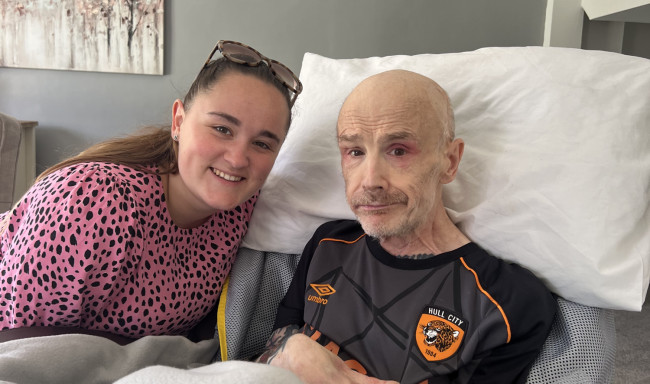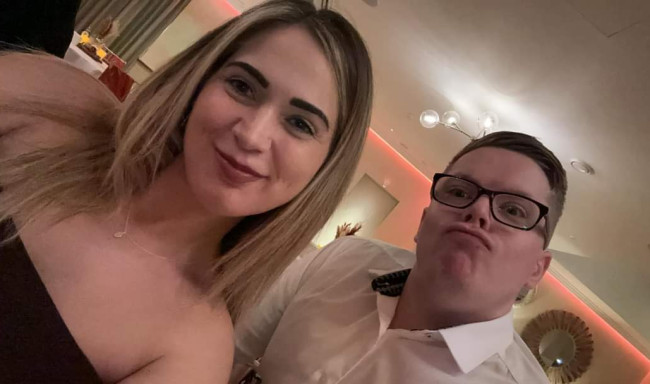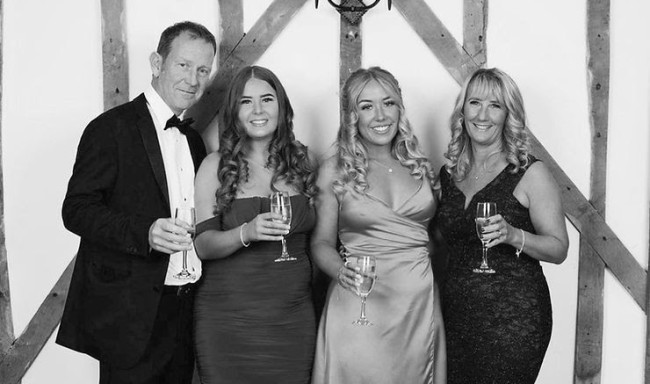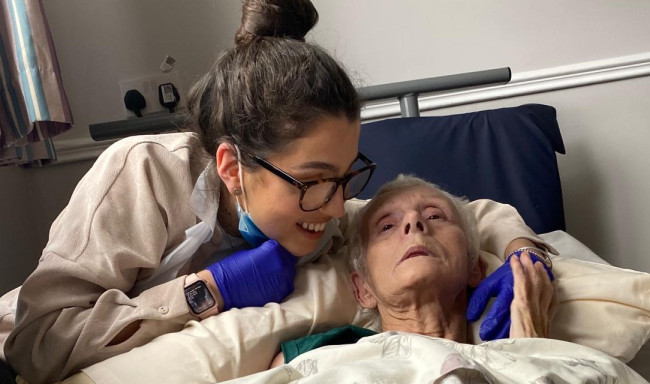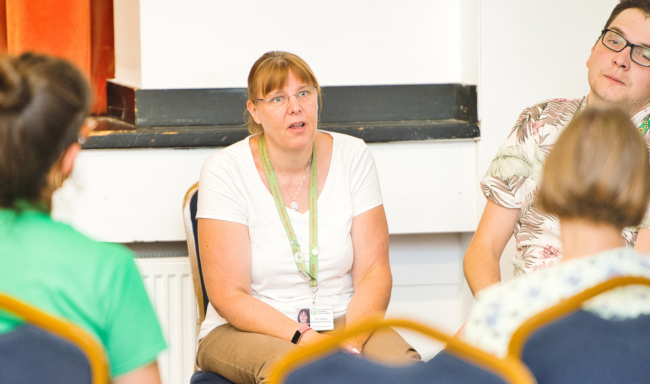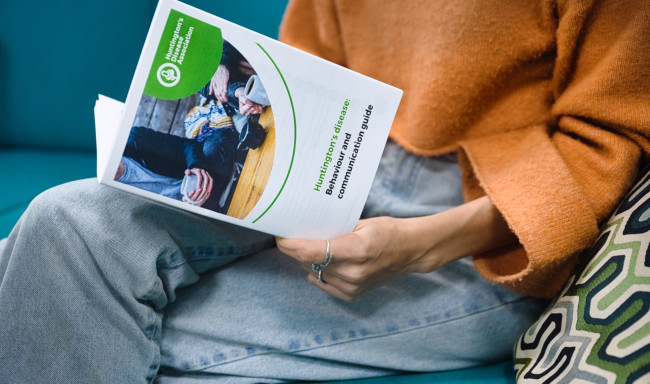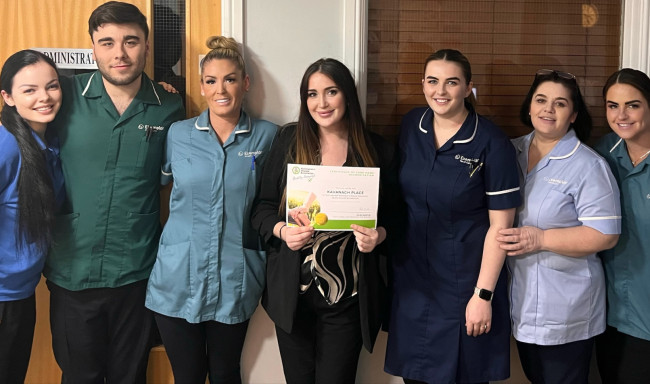Getting tested for Huntington's disease is a very personal decision and there is no right or wrong answer. Some people feel they need to know to help them navigate their future, while others feel better not knowing.
Whichever path you choose to take, our Specialist Advisers and Genetic Councellors will support you and help you decide whether it is the right decision for you. We spoke to Emma about her testing journey and starting a family through PGD-IVF.
Tell us a little about you and your background
"I am a married 35-year-old mother of a two-year-old daughter. I grew up in a very loving, supportive family with one sister, who is five years younger than me. I am also a secondary school teacher, a job that I absolutely love. My mum was diagnosed with Huntington’s disease in 2004 and later died in 2010. I also lost my dad very suddenly to a heart attack in 2014."
When did you first know that Huntington’s disease affected your family?
"I first knew that Huntington’s disease was in my family when my grandfather was diagnosed when I was 15 and it was the first I had ever heard of it. I did my own research and learned about it in school, which was when I realised that it was a genetic condition that could affect my mum and, therefore, me and my sister. I was 17 when my mum was diagnosed and her health unfortunately deteriorated very quickly."
Why did you decide to get tested?
"I decided to get tested for several reasons. For many years, I did not wish to be tested and I was happy living in the here and now. However, I was very fortunate to be able to undergo PGD IVF* three years ago and conceived my wonderful daughter knowing that she would be free from Huntington’s. When she was born, I realised that I felt more strongly about being tested, it was not just about me anymore and I felt a sense of responsibility to look after my health that I had not felt before. My husband and I discussed the process for several months before I decided to proceed."
*PGD IVF - Pre-implantation genetic diagnosis is a technique that involves testing cells from embryos created outside the body by IVF for a genetic disorder. Tests are carried out for the specific disorder that the embryos are known to be at significant risk of inheriting. The healthy embryos are then transferred into the woman’s uterus, meaning the developing child will not be affected by the disease.
What was the testing process like for you?
"The testing process for Huntington’s is extremely thorough. I started the process during the summer of 2020 but put it on hold because of the pandemic. At this point, I had had two appointments with my consultant and a genetic counsellor. By February of this year, it was clear that the pandemic was going to be ongoing for a while. I decided to get back in touch with my genetic counsellor to restart the process as it was weighing on my mind daily. I had three appointments in April, May and June of this year, before deciding to go ahead with testing. My husband attended all these with me and he was also supported through the process. We were both put in touch with the Huntington’s Disease Association for guidance when needed. My consultant was outstanding in every way. She was calm, thorough and made sure that we knew what to expect at every turn. The same goes for our genetic counsellor. When I ‘wobbled’ about the process, they very calmly allowed me to talk through my emotions, checking very thoroughly at every appointment that I still wanted to proceed. You can stop the process at any point until you have the blood test."
How did you feel after getting your result?
"I have had a real mixture of emotions since getting my test results. I was beyond relieved to test negative for the gene but have definitely struggled to feel the ‘relief’ people expected of me. I know that members of my family are still at risk, and I have certainly had moments of extreme guilt. I want to do all I can do now to support others in Huntington’s families as I know first-hand what it is like to live with someone who is affected by it. I feel like I have been given a gift, and I want to use the chances that I have been given to help others in similar situations."
What has your experience been with the Huntington's Disease Association?
"My experience with the Huntington’s Disease Association has been so positive. I have attended several events run by the charity and my local support group. I have had contact with my regional advisor and have always felt that nothing is too much trouble for those who work within the sector. This is why I want to contribute in any way I can as well."
How has your life and mindset changed since being affected by Huntington’s?
"I don’t remember my life without Huntington’s. Losing my mum changed my life beyond recognition, but I have since always had the mindset of trying to live every day to the full, embrace all opportunities offered to me, and hold those dearest to me very closely."
Thank you so much to Emma for sharing her story with us.
If you want to find out more about genetic testing, you can read our genetic testing guide. It is very common to feel guilty after a negative test, especially if your siblings have tested positive or remain at risk. If you have received a negative test and are looking for support, you can find out more information here.
If you are affected by Huntington’s disease and are in need of support or advice on testing, please contact us on 0151 331 5444 or email info@hda.org.uk. Our dedicated phone line is open 9 am – 5 pm, Monday – Friday with Specialist Advisers waiting at the other end to offer you support.
If you have a story to share, please get in touch with us via email.

